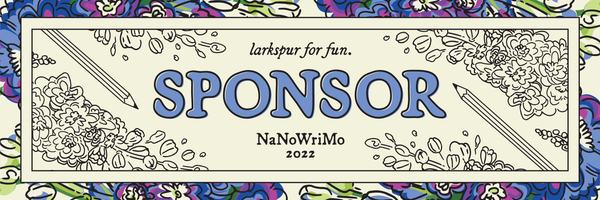Are you gearing up for NaNoWriMo? If so, you'll want to check out this blog post! We've compiled a list of 10 ways to jumpstart your novel writing journey and make the most of this month. Whether you're a first-time novelist or a seasoned pro, these tips will help you get in the groove and write more words per day. So what are you waiting for? Start reading and get ready to write!
1. Start with an outline: This will help you stay on track and ensure that your novel has a cohesive plot. Plus, it'll be easier to hit your daily word count goals if you know what needs to happen next in the story.
2. Set a daily word count goal: Make sure it's realistic so you don't get discouraged if you don't hit it every day. But having a goal to strive for will help you stay focused and motivated.
3. Find a writing buddy: It's always more fun to write with someone else, and you can help keep each other on track. Plus, it's nice to have someone to celebrate with when you reach your daily word count goals!
4. Make time for writing: Schedule it into your day like any other important appointment. And if you can't find a solid block of time, just write for 10-15 minutes here and there. Every little bit helps!
5. Set the mood: Create an environment that's conducive to writing. Whether that means lighting candles, brewing a pot of tea, or putting on your favorite music, do whatever it takes to get into the right headspace.
6. Take breaks: It's important to step away from the computer every once in a while, or you'll start to feel burnt out. So take a few minutes to stretch, take a walk, or just step away from your desk.
7. Keep distractions to a minimum: This means turning off your phone, closing social media tabs, and anything else that might pull you away from your writing. The fewer distractions you have, the more focused you'll be. Consider a distraction-free writing tool like the Traveler from Freewrite if you have trouble staying off your phone or other devices while you write.
8. Write in short bursts: If you find yourself getting bogged down, try writing in short spurts of 500 words or less. This can help break up the monotony and keep your momentum going.
9. Read other novels: Not only is this a great way to find inspiration, but it'll also help you improve your own writing. As they say, the best way to learn how to write is to read as much as you can.
10. Reward yourself: When you reach your daily word count goal, treat yourself to something special. Whether it's a cup of coffee, a piece of chocolate, or some extra time spent on social media, find something that will motivate you to keep going.
11 (BONUS!). Have fun: At the end of the day, NaNoWriMo is all about enjoying the process of writing a novel. So don't take it too seriously, and just have fun with it!
Freewrite is a proud sponsor of the NaNoWriMo 2022. Participants can find more tips from other users, a participant discount on product, and more at our NaNoWriMo sponsorship page!





















